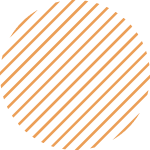Experience Life in Balance with Hormone Replacement Therapy

Are you feeling out of whack?
For many women, hormonal imbalances can cause a variety of uncomfortable and difficult symptoms. From hot flashes to mood swings, these symptoms can make it difficult to enjoy life and feel like yourself. Fortunately, a safe and effective treatment option can help: Women’s Hormone Pellet Therapy.
What is Women's Hormone Pellet Therapy?
Hormone pellet therapy involves inserting tiny pellets containing bioidentical hormones under the skin. These hormones are derived from natural sources and are designed to mimic the hormones produced by the body. The pellets release a steady stream of hormones into the bloodstream, providing consistent and long-lasting relief from symptoms.

Reasons to Consider Women's Hormone Pellet Therapy:
- Alleviate Menopause Symptoms: Hormone pellet therapy can relieve symptoms of menopause, such as hot flashes, night sweats, vaginal dryness, and mood swings.
- Boost Sex Drive: Hormonal imbalances can affect your libido and sexual function. Hormone pellet therapy can help improve your sex drive.
- Improve Mood: Hormone imbalances can contribute to anxiety, depression, and other mood disorders. Hormone pellet therapy can help regulate hormones and improve mood.
- Promote Bone Health: Hormone pellet therapy can help improve bone density and reduce the risk of osteoporosis.
- Improve Overall Health: Hormonal imbalances can affect your overall health and wellness. Hormone pellet therapy can help restore hormonal balance and improve your quality of life.



Easy Steps to Balance your Hormones
Step
Consultation with Dr. Sorina Simion-Rodgers
Step
Lab Testing through your Chosen Laboratory
Step
Insertion by Dr. Sorina Simion-Rodgers
Step
Follow-Up Labs through your Chosen Laboratory
Stop Just Surviving and Start Thriving
We offer Women’s Hormone Pellet Therapy at Bionuu Clinic for optimal health and wellness. Contact us to schedule a consultation and learn how our team can create a personalized treatment plan to meet your unique needs and help you live your best life.
Frequently asked questions
How do I get started?
Getting started with Bionuu Clinic is simple. Begin by booking a consultation through our website or by calling our office directly. This initial step will introduce you to our personalized approach to wellness and allow you to discuss your health concerns and goals.
What happens in an initial session?
During your initial session, our team will conduct a comprehensive assessment of your health history and current concerns. This may include a discussion about your lifestyle, diet, and any symptoms you’re experiencing. Based on this, we’ll suggest potential diagnostic tests and discuss treatment options to create a tailored wellness plan for you
How long will this process take?
The duration of your wellness journey with us varies depending on individual health needs and goals. Some clients see significant improvements within a few weeks, while others engage in longer-term therapies. We focus on sustainable, long-term health improvements, and our team will work with you to set realistic timelines.
Where are you located? Can we meet virtually?
Bionuu Clinic is located in Centennial Colorado, readily accessible for in-person consultations. We also understand the need for flexibility, so we offer virtual consultations for clients who prefer remote sessions or are unable to visit our clinic. This way, you can receive expert care from the comfort of your home.





